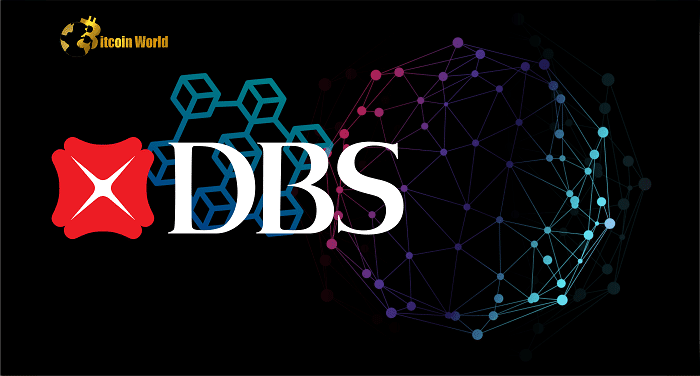Imagine a world where traditional finance giants step into the realm of decentralized finance (DeFi). Well, that future might be closer than you think! Singapore’s DBS Bank, the largest lender in Southeast Asia, has made waves by exploring the possibilities of trading government securities and foreign exchange using permissioned DeFi liquidity pools on a public blockchain. This isn’t just a small experiment; it’s a significant step that could reshape the financial landscape.
What’s the Buzz About Project Guardian?
At the heart of this development is Project Guardian, an initiative spearheaded by the Monetary Authority of Singapore (MAS) in collaboration with the financial sector. Think of it as a sandbox for innovation, designed to test the waters of asset tokenization and DeFi applications. The key objective? To unlock the potential of these technologies while carefully managing the risks to the financial system’s stability and integrity.
- Exploring Tokenization: Project Guardian is all about examining how real-world assets can be represented as digital tokens on a blockchain.
- DeFi in a Regulated Space: The project investigates how DeFi principles can be applied within a controlled and compliant environment.
- Risk Management is Key: A central focus is ensuring that the adoption of these technologies doesn’t compromise the safety and soundness of the financial system.
DBS Takes the DeFi Plunge: What Did They Actually Do?
DBS isn’t just observing from the sidelines; they’re actively participating. As part of Project Guardian, they’ve successfully tested the trading of various assets, including:
- Tokenized Singapore Government Assets: Representing ownership of government securities in a digital format.
- Singapore Dollar (SGD): Trading the local currency within the DeFi environment.
- Japanese Government Bonds: Exploring cross-border trading of international government debt.
- Japanese Yen (JPY): Facilitating foreign exchange transactions on the blockchain.
This pilot program also involves other key players like JP Morgan and Marketnode, who are contributing to the creation of permissioned liquidity pools for tokenized bonds and deposits. Think of these pools as marketplaces where these digital assets can be efficiently traded.
Why is This a Big Deal? The Potential Benefits
So, why is DBS’s move and Project Guardian generating so much excitement? It boils down to the potential for significant improvements in efficiency and risk management within financial markets. Han Kwee Juan, DBS’s group head of strategy and planning, aptly highlighted the key advantages:
| Traditional Trading | Permissioned DeFi Trading |
|---|---|
| Often involves multiple intermediaries and lengthy settlement times. | Enables simultaneous and immediate trading, settlement, clearing, and custody. |
| Can be prone to operational inefficiencies and higher costs. | Has the potential to lower friction and reduce costs significantly. |
| May involve various counterparty risks and delays. | Offers enhanced transparency and potentially reduced risks through blockchain technology. |
In essence, permissioned DeFi protocols could revolutionize how trading is conducted, making it faster, cheaper, and potentially safer.
Singapore’s Vision: Becoming a Tech-Driven Financial Hub
DBS’s involvement in Project Guardian aligns perfectly with Singapore’s broader ambition to become a leading technology-driven financial center in Asia. The Monetary Authority of Singapore (MAS) is actively embracing blockchain technology and exploring the possibilities of central bank digital currencies (CBDCs). This proactive approach signals Singapore’s commitment to staying at the forefront of financial innovation.
Actionable Insights: What Does This Mean for You?
- Keep an Eye on Institutional DeFi Adoption: DBS’s move is a strong indicator that institutional interest in DeFi is growing. Expect more traditional financial institutions to explore similar initiatives.
- Understand Permissioned DeFi: This model offers a more regulated and controlled entry point for traditional players into the DeFi space. It bridges the gap between decentralization and compliance.
- The Future of Asset Tokenization: The success of Project Guardian could pave the way for wider adoption of asset tokenization across various industries, creating new investment opportunities and efficiencies.
Challenges and the Road Ahead
While the potential is immense, it’s important to acknowledge the challenges. Navigating regulatory frameworks, ensuring interoperability between different blockchain platforms, and addressing security concerns are crucial hurdles that need to be overcome. However, initiatives like Project Guardian are vital steps in addressing these challenges and paving the way for a more integrated and efficient financial future.
In Conclusion: A Glimpse into the Future of Finance
DBS Bank’s foray into trading traditional assets on a permissioned DeFi protocol is more than just a news headline; it’s a glimpse into the evolving landscape of finance. By embracing blockchain technology and collaborating on innovative projects like Project Guardian, institutions like DBS are actively shaping a future where traditional finance and DeFi converge. This development has the potential to unlock significant efficiencies, reduce friction, and ultimately benefit the entire financial ecosystem. The journey is just beginning, but the direction is clear: the future of finance is increasingly digital and decentralized.
Disclaimer: The information provided is not trading advice, Bitcoinworld.co.in holds no liability for any investments made based on the information provided on this page. We strongly recommend independent research and/or consultation with a qualified professional before making any investment decisions.


